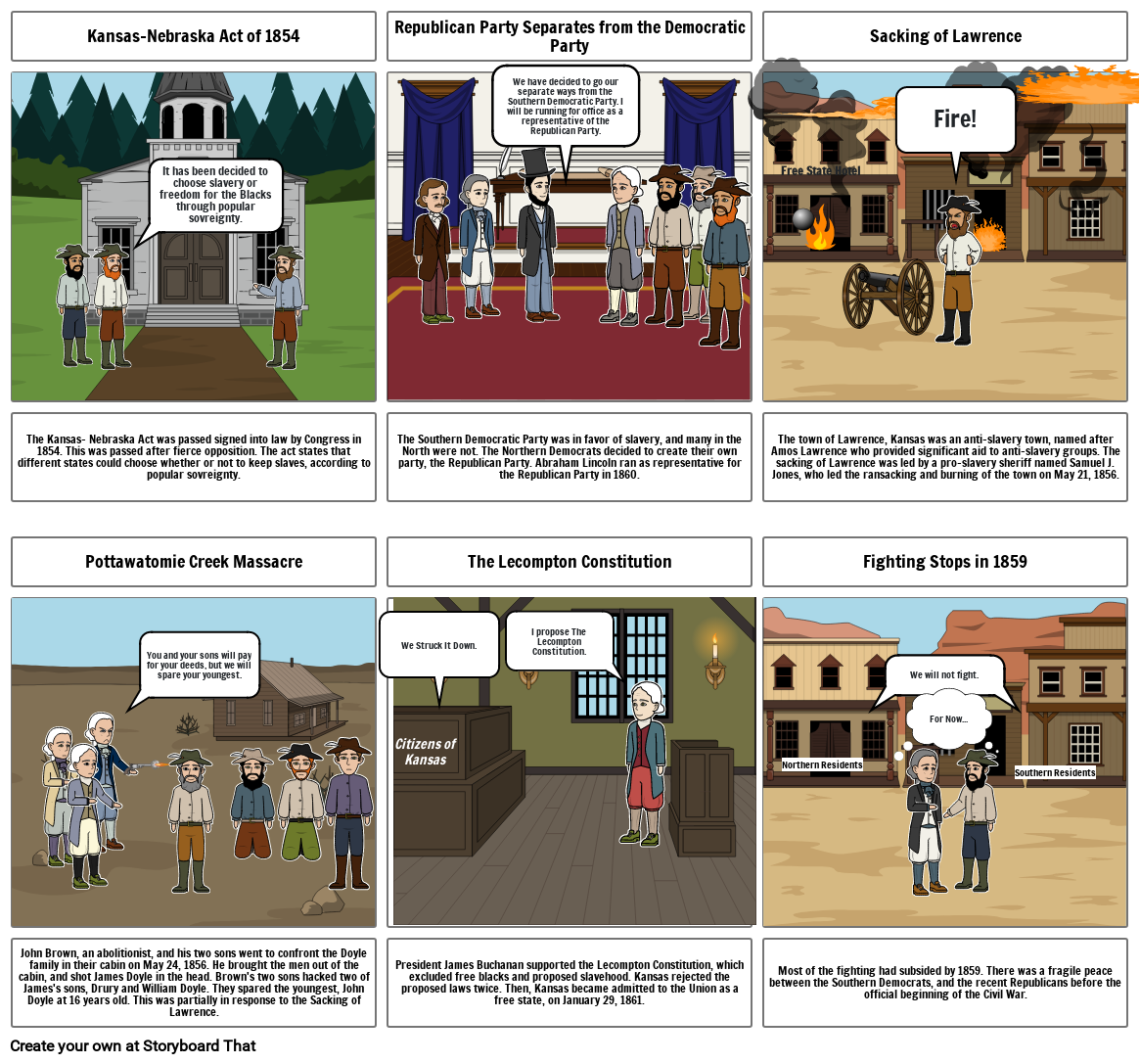Bleeding Kansas

Storyboard Text
- Kansas-Nebraska Act of 1854
- It has been decided to choose slavery or freedom for the Blacks through popular sovreignty.
- Republican Party Separates from the Democratic Party
- We have decided to go our separate ways from the Southern Democratic Party. I will be running for office as a representative of the Republican Party.
- Sacking of Lawrence
- Free State Hotel
- Fire!
- The Kansas- Nebraska Act was passed signed into law by Congress in 1854. This was passed after fierce opposition. The act states that different states could choose whether or not to keep slaves, according to popular sovreignty.
- Pottawatomie Creek Massacre
- You and your sons will pay for your deeds, but we will spare your youngest.
- We Struck It Down.
- The Southern Democratic Party was in favor of slavery, and many in the North were not. The Northern Democrats decided to create their own party, the Republican Party. Abraham Lincoln ran as representative for the Republican Party in 1860.
- The Lecompton Constitution
- I propose The Lecompton Constitution.
- The town of Lawrence, Kansas was an anti-slavery town, named after Amos Lawrence who provided significant aid to anti-slavery groups. The sacking of Lawrence was led by a pro-slavery sheriff named Samuel J. Jones, who led the ransacking and burning of the town on May 21, 1856.
- Fighting Stops in 1859
- We will not fight.
- John Brown, an abolitionist, and his two sons went to confront the Doyle family in their cabin on May 24, 1856. He brought the men out of the cabin, and shot James Doyle in the head. Brown's two sons hacked two of James's sons, Drury and William Doyle. They spared the youngest, John Doyle at 16 years old. This was partially in response to the Sacking of Lawrence.
- Citizens of Kansas
- President James Buchanan supported the Lecompton Constitution, which excluded free blacks and proposed slavehood. Kansas rejected the proposed laws twice. Then, Kansas became admitted to the Union as a free state, on January 29, 1861.
- Most of the fighting had subsided by 1859. There was a fragile peace between the Southern Democrats, and the recent Republicans before the official beginning of the Civil War.
- Northern Residents
- For Now...
- Southern Residents
Over 30 Million Storyboards Created
No Downloads, No Credit Card, and No Login Needed to Try!
